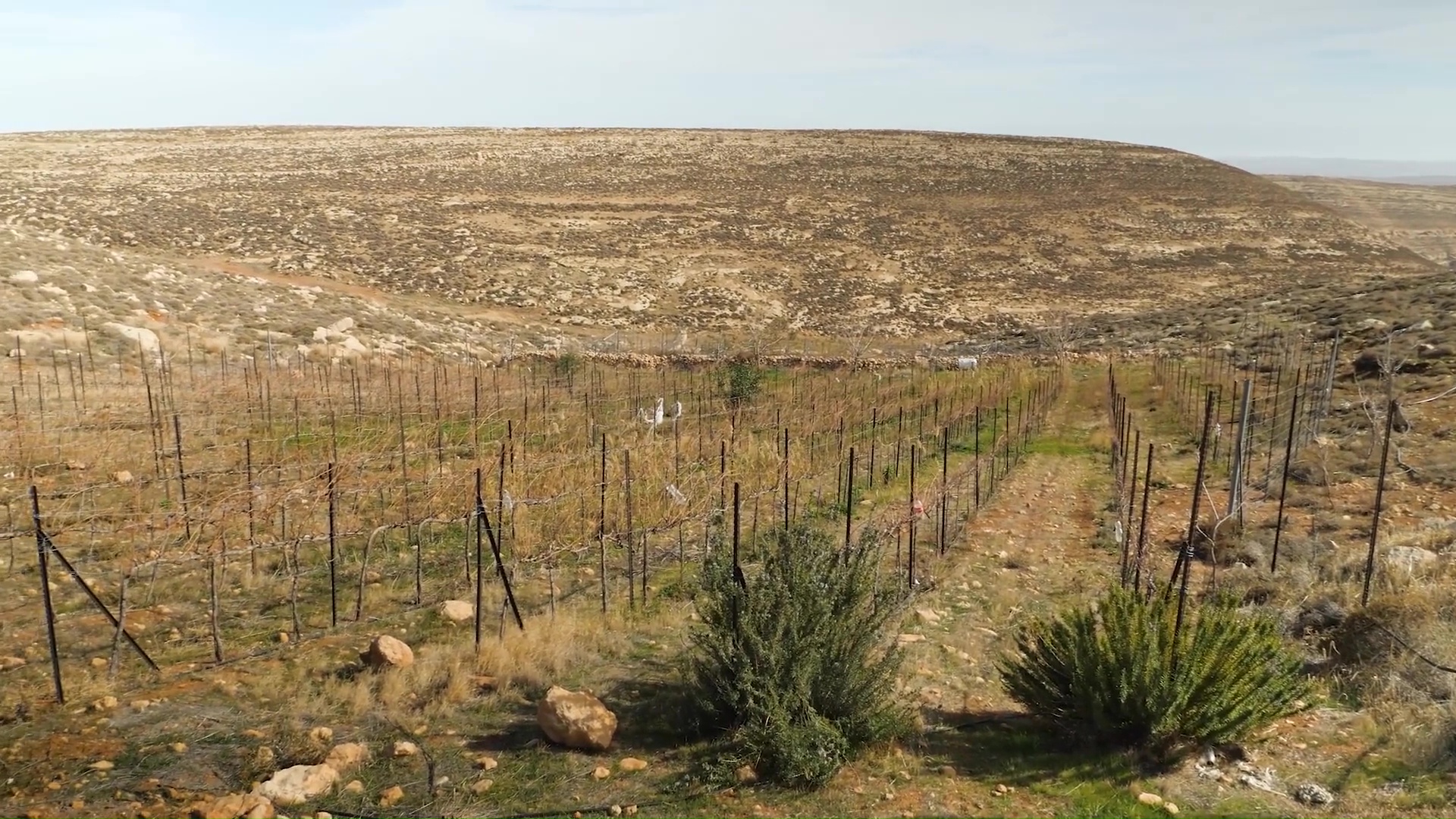ISRAEL — A large part of the world refers to the land of Judea and Samaria as “Cisjordania.” For many Christians, and especially for the Jews living there, Judea is considered the land of the Bible.
In these hills not far from Jerusalem, the Arugot Farm is located. For six years, its founders have built a complex on a land that was once barren. Located in Judea, they see this place as the Bible coming to life. CBN News met with its founders, Rabbis Ari Abrimovitz and Jeremy Gimpel.
Jeremy Gimpel – Founder of Arugot Farm:
“We are in the heart of Judea. Bethlehem is 15 minutes in that direction. Just there, through those buildings that kiss the sky, is Jerusalem. 45 minutes in this direction is Hebron. Bethlehem, Jerusalem, and Hebron, we are in the heart of Judea.”
Gimpel speaks about the connection to King David.
Jeremy Gimpel:
“When young, David took his sheep and grazed them on these lands. According to Jewish tradition, most of the Book of Psalms was written in these mountains, before David became king. In times of trouble, he ran to the place he knew best. He knew where the caves, water wells were. He knew how to survive here. That’s why these are historic, sacred mountains.”
The UN and many countries consider the mountains where David wrote the Psalms as occupied territory and view the Jews living there as an obstacle to peace.
Ari Abrimovitz – Founder of Arugot Farm:
“Why do they call it the West Bank? Because it’s easier to say: ‘Let’s remove the settlers from the West Bank’ instead of, ‘Let’s remove the Jews from Judea.’ The reason Jews are called Jews is because we are from Judea. This is our land. The first Jew called a Jew was Mordecai, but he was from the tribe of Benjamin. Why was he called a Jew? Because he was exiled from Judea. So this is the most natural place for a Jew to grow and prosper, right here in Judea.”
Local leaders asked these farmers to settle the land to create a tourist attraction, but it has become much more.
Jeremy Gimpel:
“We feel called to come, pave the way, and open the place where the Psalms were written. King David taught all the Christians and Jews in the world. When someone is sick, we open the Book of Psalms and know how to pray to God. Those prayers were born here. This place has been a center of prayer, worship, song, and music that is open to the world.”
A common perception is that Jews and Arabs cannot coexist. Here, it’s not the case.
Ari Abrimovitz:
“If you go to our nearby Arab village and ask them, ‘What do you think of these Jews?’ They will say that we are friends. They are a blessing for us. I know they would say that because they have come here and said they would be with us.”
OK, where are we now?
Jeremy Gimpel:
“This is the top of the mountain. According to Jewish law, at the top of a mountain, you have to build a structure dedicated to the highest God. So this is our house of prayer. It took us seven years to build it.”
Ari Abrimovitz:
“I consider this place the crown jewel. Of everything we’ve done. Possibly the crown jewel of Judea. This is the soul of our place.”
Jeremy Gimpel:
“It’s beautiful that we are surrounded by many towns, but the mattresses and pillows you see here were donated by the Muslim Arab village below. They appreciate us coming because, when we arrived, we paved the roads that lead to their village. The police now patrol the road, ensuring that people drive safely. We have been a blessing to this place.”
In addition to the house of prayer, the farm includes several houses, hundreds of trees, and a vineyard. They also organize an online Bible study. Throughout the building, the Book of Amos has served as a model.
Ari Abrimovitz:
“This is prophetic. It’s the same land where Amos had his prophecy. His prophecy was in these mountains, and the last three verses of his prophecy say: ‘I will return the exiles of my people. They will rebuild desolate cities and plant vineyards and drink their wine and plant gardens and eat their fruit.’ Here we have vineyards, just on the same land where he prophesied.”
Jeremy Gimpel:
“Amos was in these mountains and had a vision of rebuilt cities, vineyards, and fruit trees. I wonder if this building being built, this vineyard planted here, was what he saw? We built it inspired by his words. He guided us to plant this.”
Ari Abrimovitz:
“The eighth chapter of Amos summarizes our entire mission here. It says there will be hunger in the land, but the hunger will not be for bread. The thirst will not be for water, but for hearing the words of HaShem. The retreat center and the house of prayer. Everything we do is to satisfy that hunger that is not for bread, but for hearing the word of God. The words of God are resonating from the mountains of Judea to the entire world.”
Read more news on Israel and the Bible on Missions Box.
Sources: Global News Alliance, Israeli Farmers Bring The Bible to Life in Judea
